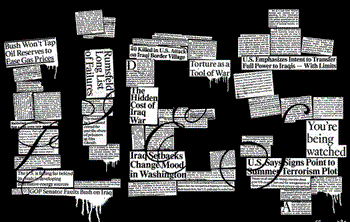Here’s one reason February has been such a bitch: My routine has been so far off the rails that it has been hard to keep my perspective. It hurts the whole family-work dynamic. For a person in recovery, routines are beyond huge.
Mood music:
[youtube http://www.youtube.com/watch?v=6YzKLRM-pr4&fs=1&hl=en_US&rel=0]
Being the restless, boredom-shunning soul that I am, I always look forward to the next trip. I always miss my wife and children during these outings, but it’s also good to get out of the normal environment from time to time. It tests you and can even rejuvenate. I’ve also learned that recovery is portable. You can take your program just about anywhere. I’ve also learned that God is with me wherever I go, and that makes it much easier to approach life in a fearless way.
Here’s the problem: Do too much of this sort of thing and you hurt yourself and those around you. That’s exactly what I did in late January and the first half of February. I went to Washington and San Francisco within a two week period and came home violently ill. Served me right, but my family didn’t deserve having to carry on while I was passed out on the couch.
I thought I had the groove of a traveling man down pat, but I was being stupid.
Last week was a lost week of sorts. I was home a lot with my family, but mentally I was pretty vacant.
But it’s a new week. I’m in the office doing routine things. This afternoon I’ll go home and do more routine things. And I’ll be happy doing it.
I started on the path back to sanity yesterday by going to Mass. Driving there in a snowstorm wasn’t sane, mind you. But by the time Mass was over I felt so happy to be back. When you travel and focus on work too much, God gets the shaft, too.
That point was driven home to me when I did another routine thing last night and went to a 12-Step study meeting.
The main topic was fear and the things addicts do because of it. People discussed how their fears — over being accepted, over an abusive, drunken spouse, over work — made them drink, drug and binge eat. I sat there silent because I’m still too early in the Big Book-study process to share at these meetings, but I had a different, stranger take on fear than the rest of the room. I’ve lived in their brand of fear, to be sure.
My problem of late has more to do with the collateral damage caused when you lose the fear that held you back. You get a big lust for life, which may sound all well and good until you realize it’s just another extreme way of living.
Extremes are like absolutes: Both have caution signs plastered all over them. You go too far in one direction and neglect other, important parts of your existence.
I’ve always been a man of extremes. I’m either badly depressed like I was last week, shut off from the rest of the world, seeing only the calamities, or I’m ON — working, playing and grabbing on to every activity I only think I can handle at the time.
The middle speed in my engine rarely works right. It’s either all or nothing, and that’s a problem that may well plague me for the rest of my life.
But I’m not giving up without a fight.
This much I know: I’m always closest to the middle gear when I follow a rigid routine. That includes three weighed-out meals sans flour and sugar, an early bedtime because I rise early, at least two 12-Step meetings a week, regular check-ins with my sponsor, regular visits to the therapist, and daily prayer. It should also include time set aside after work to catch up with my wife and kids.
This is the stuff I need to work on, and I don’t tell you all this in a search for sympathy. We all have issues to work on every day. We all have our good days and bad days. I’m nothing special. I just happen to have a blog where I can process this stuff aloud. 
The blog has become another important part of my routine.
But my use of it can become unbalanced, too.
This is just one of the crosses I carry.
But 10 of my crosses are absolutely nothing compared the Cross Jesus carried. I just forget from time to time.
Some of you think that kind of talk is nonsense.
Nobody’s perfect.



